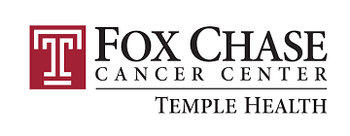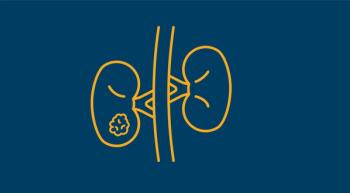
Nivolumab/Cabozantinib continued to outperform sunitinib in an updated analysis of the phase 3 CheckMate 9ER trial.

Nivolumab/Cabozantinib continued to outperform sunitinib in an updated analysis of the phase 3 CheckMate 9ER trial.

Kathryn Maples, PharmD, BCOP, highlights recent approvals, and updated labeling, along with drug removals, across leukemia, lymphoma, and multiple myeloma.

National Donor Day happens during the month of February and is a great time to encourage people in your life to give.

Atezolizumab did not yield a significant improvement in overall survival compared with placebo plus platinum-based chemotherapy and gemcitabine in patients with untreated locally advanced or metastatic urothelial cancer.

Patients with papillary high-risk non-muscle-invasive bladder cancer whose disease was BCG-unresponsive showed continued antitumor activity with pembrolizumab monotherapy.

Patients with relapsed or refractory multiple myeloma experienced improved progression-free survival with idecabtagene vicleucel. Notably, cytokine release syndrome rates were high with this treatment.

Elranatamab, an investigational BCMA/CD3-targeted bispecific antibody, has received priority review status for patients with relapsed or refractory multiple myeloma.

Nurses should educate patients not only about screening guidelines, but about important cancer risks to help improve cancer prevention.

Fox Chase Cancer Center has achieved Magnet designation for nursing excellence from the American Nurses Credentialing Center (ANCC) for the sixth consecutive time.

AON celebrates its Board of Managers’ appointments and retirements.

Terri Pollack, DNP, APRN, FNP-C, PMHNP-BC, shares some of her top takeaways from the 2023 ASCO GI Cancers Symposium.

The FDA has granted avasopasem a priority review for severe oral mucositis in patients with head and neck cancer who are receiving radiotherapy.

Extended follow-up of the CheckMate 274 trial showed continued efficacy with nivolumab in patients with muscle-invasive urothelial cancer who had undergone radical resection.

Restricted diets are commonplace at many cancer centers, but there is no evidence that they reduce a patient’s risk of infection.

Real-world data support front-line maintenance with avelumab for patients with locally advanced or metastatic urothelial carcinoma following platinum-based chemotherapy.

Updated findings from the KEYNOTE-146 trial support the use of lenvatinib/pembrolizumab in advanced endometrial cancer.

The median overall survival was 42.1 months with abiraterone plus olaparib and 34.7 months with abiraterone plus placebo in patients with metastatic castration-resistant prostate cancer.

Approximately 30% of patients remained on treatment with darolutamide for over 4 years, according to a long-term safety and tolerability updated from the ARAMIS rollover study.

At a median follow-up of 24.9 months, imaging-based progression-free survival was not reached among patients with metastatic castration-resistant prostate cancer who had received talazoparib plus enzalutamide.

Long-term data support a de-escalated dose of tamoxifen for certain women with breast intraepithelial neoplasia who are unable to receive the standard dose.

Frontline ponatinib plus reduced-intensity chemotherapy yielded a higher minimal residual disease-negative complete remission rate than imatinib in the phase 3 PhALLCON study.

Prior authorization costs clinicians time and money. Heading into 2023, prior authorization was listed as a top administrative challenge.

As treatment strategies for renal cell carcinoma shift to targeted therapies and immunotherapy, reassessing the quality of end-of-life care remains essential, according to investigators.

Nursing education should be viewed as a long-course endeavor rather than a sprint.

Triple-negative breast cancer often occurs in women younger than 40.

Three groups have combined efforts to create a Health Equity Report Card pilot program which will seek to address the sources of disparities in the cancer care system.

Being an oncology nurse means supporting the patient—even through social media engagement.

In an 8 to 5 vote, ODAC voted in support of launching 2 single-arm trials seeking to characterize the risk-benefit profile of dostarlimab for patients with dMMR/MSI-H locally advanced rectal cancer.

According to Fennec Pharmaceuticals, the National Comprehensive Cancer Network is updating it guidelines to recommend injections of sodium thiosulfate to reduce the risk of ototoxicity in pediatric patients receiving cisplatin.

Anna Skwira-Brown, APRN, AOCNP, highlights the value of taking a moment to pause before embarking on a serious conversation with a patient during end-of-life care.